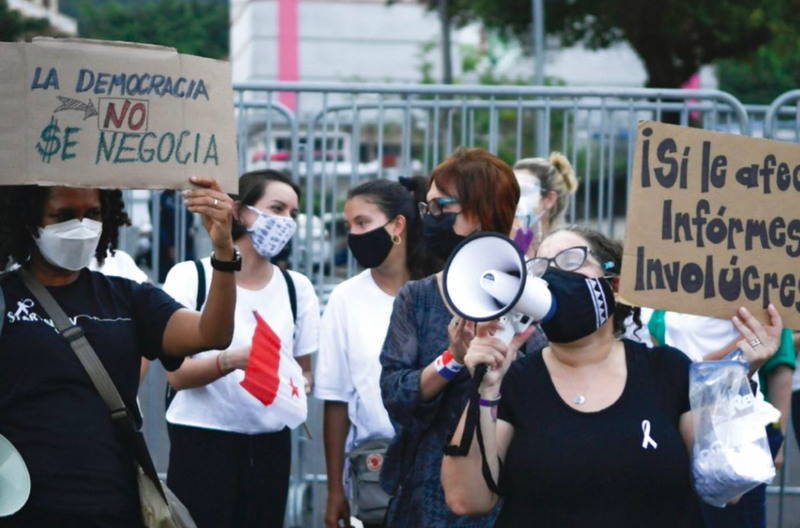President’s Veto of Electoral Reform

Cortizo’s partial veto of bill 544 reforming Panama’s Electoral Code only addressed one article, despite citizens’ concerns with four articles detrimental to equality and democracy in Panama.
La Prensa published this morning that "the presidential veto of the President of the Republic, Laurentino Nito Cortizo , to bill 544, on electoral reforms revolved around an endorsement of the official bench of the Democratic Revolutionary Party (PRD), criticism of the Electoral Tribunal and the rejection of the article that established an amnesty for the 2019 candidates".
That being said the veto was accepted yesterday by the Government Commission and the plenary session of the National Assembly, establishing Law 247 of October 22, 2021, which reforms the Electoral Code.
In the public eye, the president’s veto leaves other issues, "detrimental to equality and the country’s democratic system" behind. Gender parity, adjudication seats, and the distribution of public funding and among the articles that have been the cause of dozens of protests.
While the president offered his opinion in a four-page document addressed to the President of the Assembly, speaking to articles of gender parity, the distribution of seats in circuits where more than one deputy is elected, and the distribution of public financing, he did not veto them.
The only article vetoed establishes an amnesty for candidates who in 2019 did not submit their expense report. A fine of up to $ 3,000 was imposed.
Protests against Electoral Reform in Panama
Civic society organizations along with the magistrates of the Electoral Tribunal requested that President of the Republic, Laurentino Nito Cortizo veto (at least in part) bill 544 reforming the electoral process in Panama.
Read more: Civil organizations would ask to veto reforms LA PRENSA
Those opposed to the bill addressed four main issues, among them were gender parity, inequity in the distribution of public funding, and amnesty in the payment of fines for those who failed to deliver reports on income and campaign expenses.
Transparency International (TI) joined many citizens rejecting the electoral reforms approved. The agency said in a statement:
"We call for citizen mobilization to demand our right to fair elections, where the vote is counted fairly and the candidates, parties or independents, men or women, all run with equal conditions."
Elia López de Tulipano, from the Forum of Women of Political Parties and member of the National Commission for Electoral Reforms (CNRE), said:
"If the project is sanctioned we will use our constitutional rights as citizens, to ensure women the right to equality.”
Only 6 deputies voted against the bill
La Prensa reported as published by the National Assembly, only six deputies voted against the bill. 52 deputies voted in favor of the project and 13 were absent.
La Prensa also detailed in their article, President to Veto Electoral Reform project, of the 52 votes in favor, 28 were from deputies of the Democratic Revolutionary Party (PRD) and the remaining 24 are from Cambio Democrático, the Liberal Republican Nationalist Movement, and the Panameñista Party.
Those who voted against were Juan Diego Vásquez, Edison Broce and Raúl Fernández; of the independent bench and Luis Ernesto Carles, Pedro Torres and Yesenia Rodríguez, from the Panameñista Party.
Souce: La Prensa
Trending Tags
